
Bison The Canadian Encyclopedia
Years in the Making. Wood bison are the lesser-known and larger cousins of plains bison, the kind that once roamed the continental U.S. (and still do, in isolated areas). Wood bison are native to Alaska and Canada. A fully-grown wood bison bull will often weigh 2,250 pounds, as compared to the 1,900-pound bodies of the smaller plains bulls.

Figure 1.1 from Ovarian synchronization and superstimulation in wood
Conservation efforts in both Canada and the United States mean that today, North America's plains bison population fluctuates between 350,000 and 400,000, and wood bison between 5,000 and 7,000. Plains bison A plains bison in the Bison Paddock at Waterton Lakes National Park, Alberta. Photo taken on 29 June 2012. (© Inciter/Dreamstime)
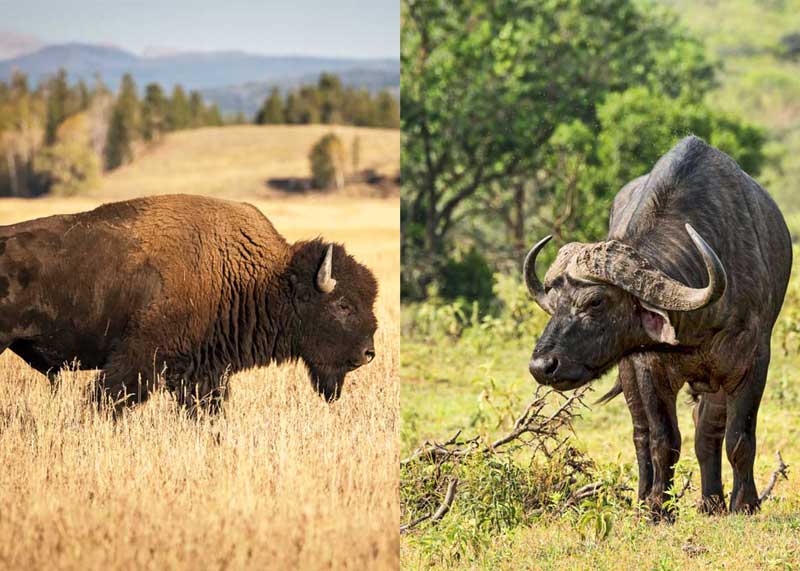
Buffalo vs Bison 9 Differences Between 4 Species Storyteller Travel
wood bison steppe bison long-horned bison European bison On the Web: Academia - Genus Bison (Bovidae, Mammalia) in Early Pleistocene of Moldova (Dec. 08, 2023) (Show more) See all related content → bison, (genus Bison ), either of two species of oxlike grazing mammals that constitute the genus Bison of the family Bovidae.
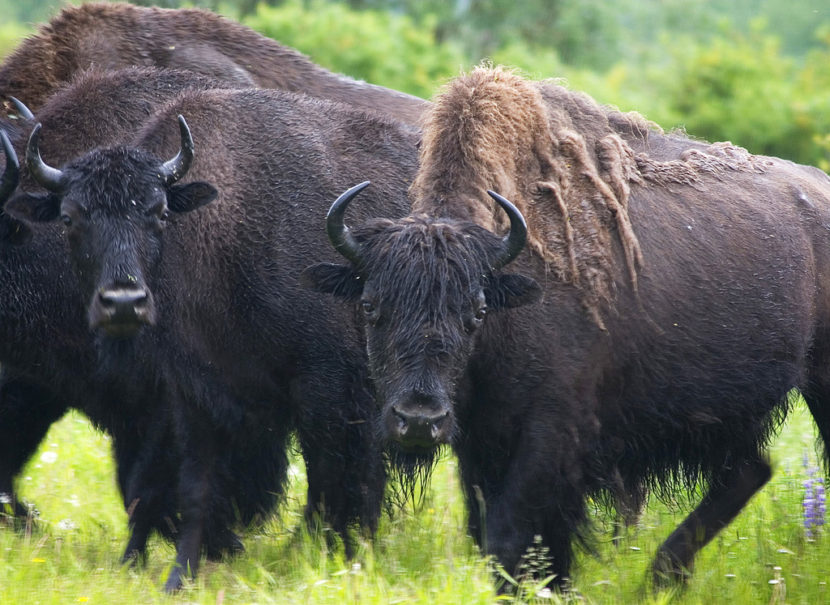
Alaska biologists say wood bison reintroduced to the wild are thriving
Plains Bison vs Wood Bison This illustration details the differences between wood bison (top) and plains bison (bottom). (Click on the image to explore it further) (illustration by Wes Olson) History, politics, arts, science & more: the Canadian Encyclopedia is your reference on Canada.

Wood Bison and Plains Bison comparison by SingleLegTakedown on DeviantArt
Wood bison are listed as an endangered subspecies, while plains bison are not. "This is important because the Endangered Species Act allows subspecies to be listed as species," said Matthew Cronin, UAF professor of animal genetics.

Wild buffalo in Wood Buffalo National Park Part 4
The Plains bison ( Bison bison bison) is one of two subspecies / ecotypes of the American bison, the other being the wood bison ( B. b. athabascae ).

Alaska Wildlife Conservation Center The Good, The Bad and the RV
Wood Bison vs Plains Bison "artwork by Wes Olson" The Plains Bison (genus: Bison, species: bison, subspecies: bison)

Happy National Bison Day!... Peppermint Narwhal Creative
Overview. A familiar icon of the American West, the Plains bison ( Bison bison bison ), also commonly called buffalo, is one of two subspecies of the American bison, with the other being the wood bison ( Bison bison athabascae ). These large mammals once numbered in the tens of millions and roamed North America in nomadic herds.
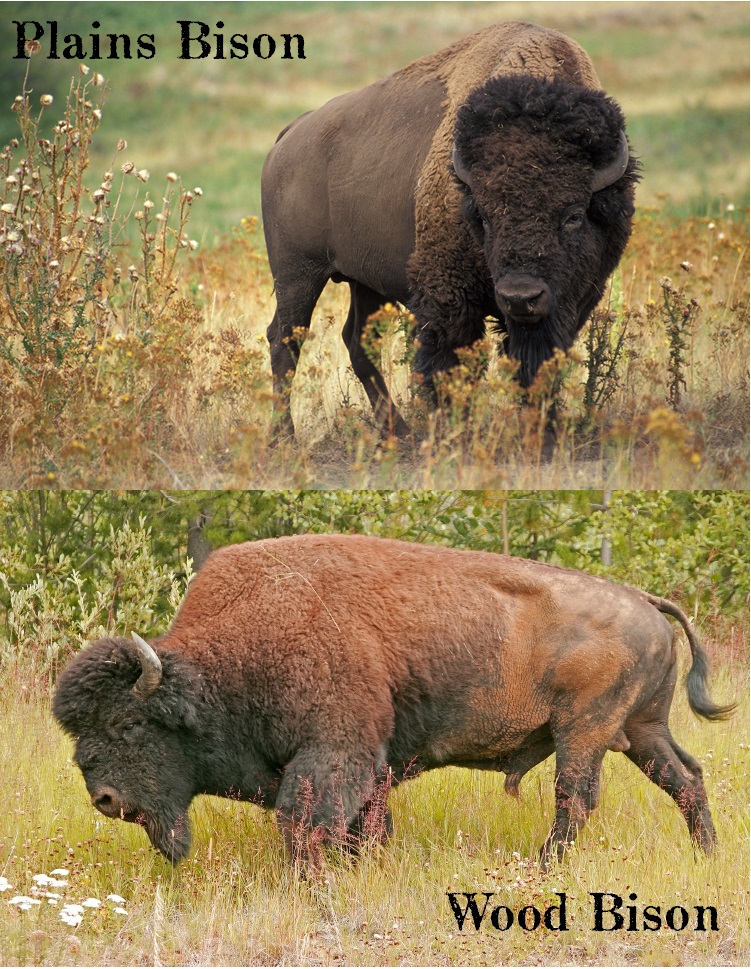
How Canada Saved the Buffalo
ADOPT AN ANIMAL American Bison Bison bison Status: Not Listed Classification: Mammal Description This animal's true name is the American bison, but most people call them buffalo. Bison are the largest terrestrial animal in North America. They can stand up to six feet (1.8 meters) tall.

Bison The Canadian Encyclopedia
Wood Bison are about 15 percent heavier than Plains Bison. Original distribution of Wood Bison during the last 5,000 years (stippled). Based on available zooarcheological and paleontological evidence and oral and written accounts. Parks Canada.

Pin by Božena K. on Safari und Afrika in 2020 Animals information
Wood Bison (Bison bison athabascae) Species Profile Description Uses Management Research Get Involved More Resources Photo Gallery Video View Large Map Did You Know? Wood bison calves can stand when they are only 30 minutes old and can run within hours of their birth. Special Status Listing: Yes, see Status, Trends and Threats.

Plains Bison & Wood Bison Restoration Get Involved Educational
Bison conservationists agree on several things: 1) multiple morphological and genetic characteristics distinguish plains bison from wood bison; 2) plains bison and wood bison continue to be morphologically and genetically distinct, despite some historic forced hybridization; and thus 3) wood bison constitute a subspecies of bison, and therefore,.

Wood Bison vs. Plains Bison Bison photo, Buffalo animal, Bison
The Plains bison, scientifically known as Bison bison bison, stands as a symbol of North America's untamed wilderness. With their distinctive humped shoulders and dark brown, shaggy coats, these colossal creatures are the epitome of strength and resilience.
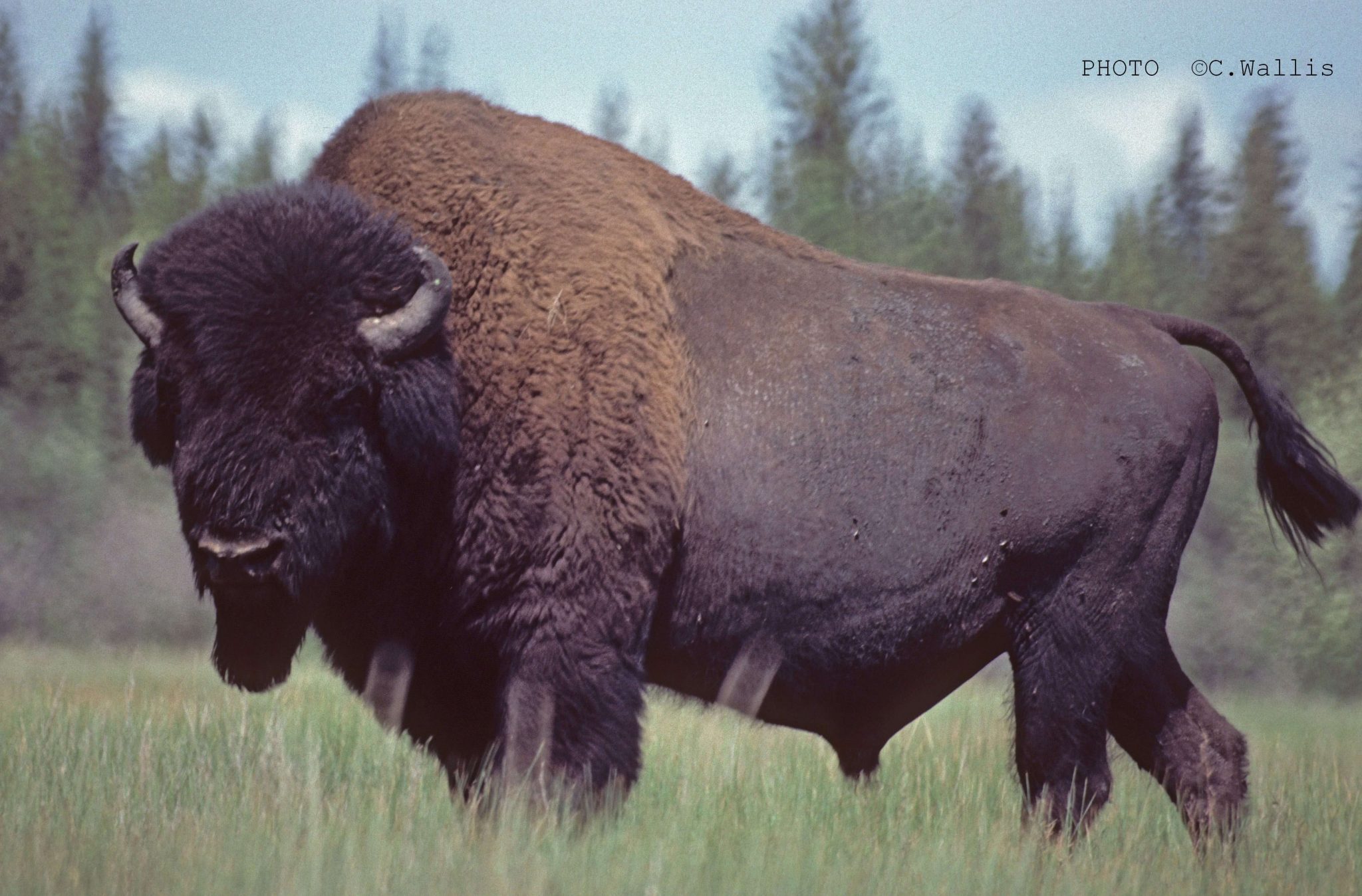
Bison Alberta Wilderness Association
Technical Summary (Wood Bison) Preface Wildlife Species Description and Significance Name and Classification Morphological Description Population Spatial Structure and Variability Designatable Units Special Significance Distribution Original Distribution History of Decline and Early Restoration of American Bison in Canada Current Distribution
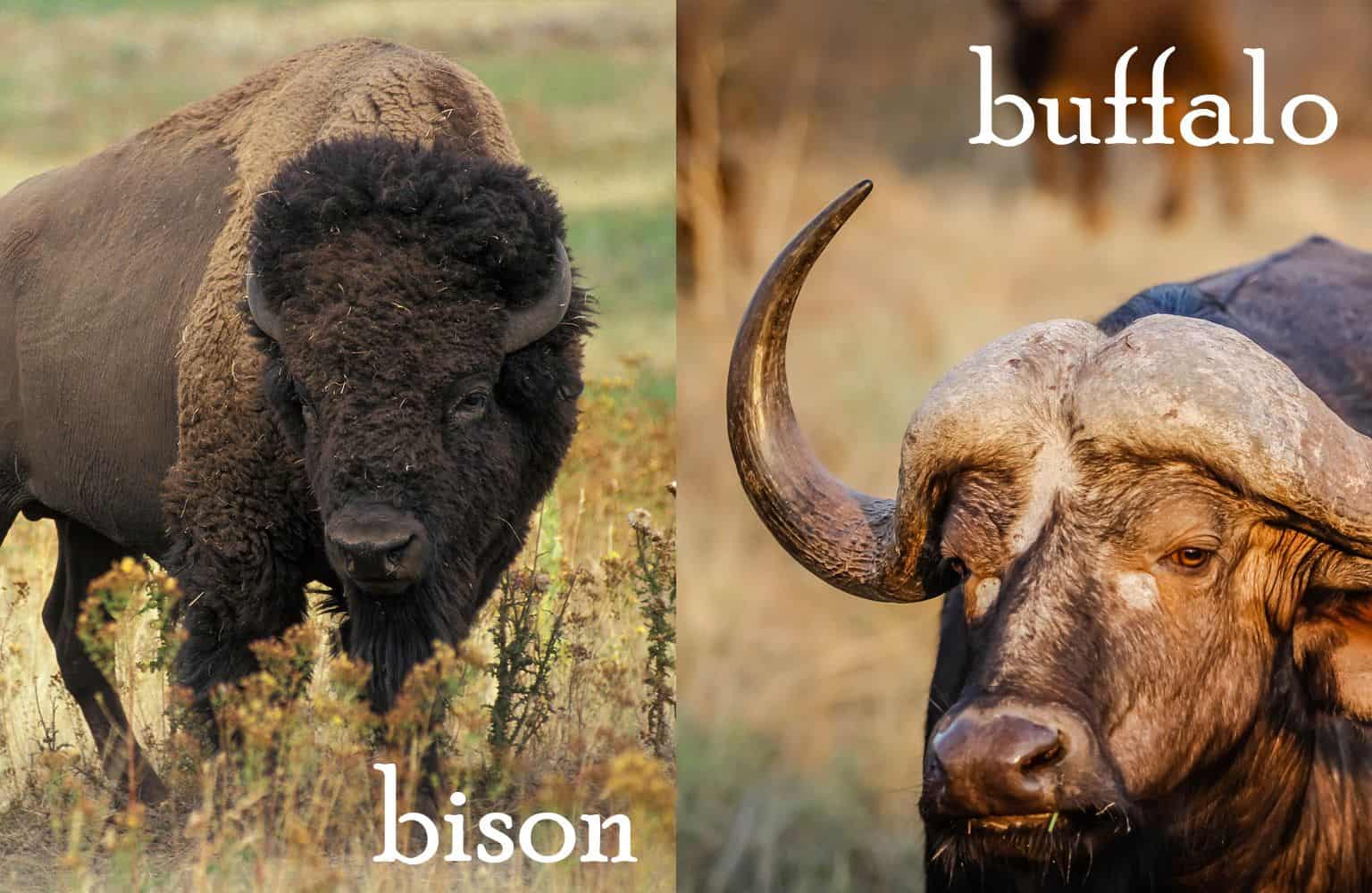
Bison vs. Buffalo What’s the Difference? * The Homesteading Hippy
Wood Bison vs. Plains Bison:The Differences There are quite a few visual differences between the two subspecies: Compared to the plains bison, the wood bison is larger and heavier, attaining a weight of almost 200 pounds more. The hump of the plains bison is rounded, while the wood bison's is somewhat squared.
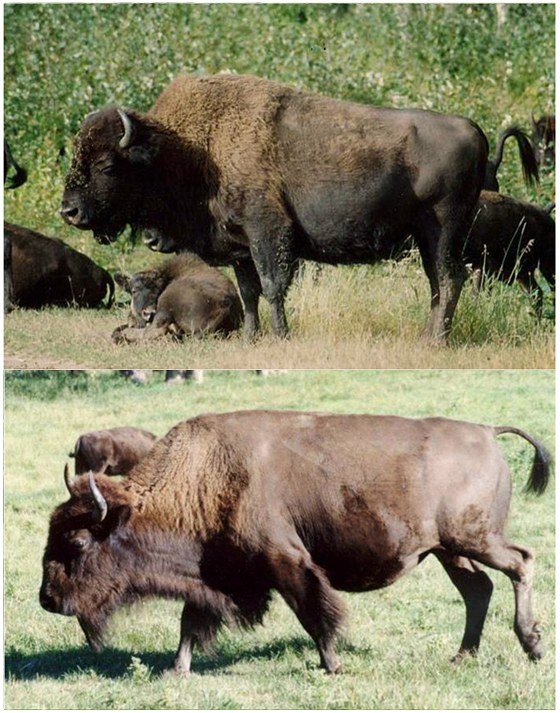
Plains bison and wood bison COSEWIC assessment and status report 2013
Morphology Bull at North Carolina Zoo The wood bison is potentially more primitive in phenotype than the plains bison ( Bison bison bison ), while the latter probably evolved from a mixing of Bison occidentalis and Bison antiquus. [13] It is unclear whether today's animals preserve the original phenotypes existing prior to the 1920s. [13]